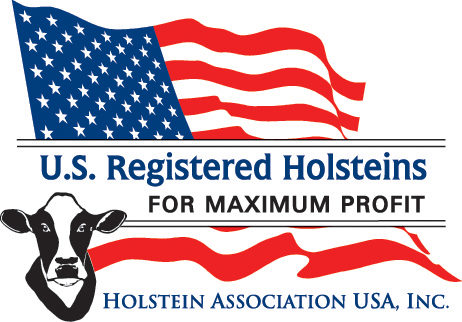- Americans to purchase 88 million pounds of cheese for Super Bowl
- What was in your mailbox in October?
- CMPB launches ‘Moo Money‘ consumer loyalty program
- ‘Origin of livestock’ rule sought by organic dairy group
- Proposal modifies North Dakota farm ownership requirement
- Schools invited to participate in Northeast virtual farm tours
- EEX, GDT take steps toward creating a European dairy auction
- Wisconsin Farmers Union members support supply management, dairy price formula changes
Americans to purchase 88 million pounds of cheese for Super Bowl
The Dairy Farmers of Wisconsin project Americans will buy 88 million pounds of cheese in the week leading up to the Super Bowl, Feb. 3. That’s enough cheese to cover Atlanta’s Mercedes-Benz Stadium football field – site of the game – end zone to end zone, 10 yards deep.
The game marks the second biggest food holiday of the year, second only to Thanksgiving. Cheese sales go up 10 percent in the lead-up to game day, according to Information Resources Inc. (IRI) data.
The Dairy Farmers of Wisconsin is a checkoff-funded organization. In addition to about 8,100 dairy farm families, Wisconsin is home to 1,200 cheesemakers.
What was in your mailbox in October?
October 2018 “mailbox” milk prices for selected reporting areas in all Federal Milk Marketing Order (FMMO) areas averaged $17.03 per hundredweight (cwt), up 78 cents from the September 2018 average, but down 53 cents per cwt from the October 2017 average. Mailbox prices in October 2018 ranged from a high of $19.03 in the Florida reporting area to $14.79 in the New Mexico reporting area.
The mailbox price approximates the net price received by dairy farmers for milk after adding any premiums and deducting costs associated with hauling and marketing.
Through the first 10 months of 2018, the average all-FMMO mailbox price was about $1.68 per cwt less than the same period in 2017. For those with a longer memory, average mailbox prices were running $8.86 per cwt less than the record highs of 2014.
CMPB launches ‘Moo Money‘ consumer loyalty program
The California Milk Processor Board (CMPB) launched a consumer loyalty program, offering “Moo Money” to California consumers as a reward for purchasing real dairy milk.
Eligible California consumers who register online can earn points for every $1 spent toward a qualifying purchase of real dairy milk; all they have to do is snap a picture of their receipt and submit it to receive points into their account. Alternative “milk” products and beverages, such as rice, coconut, almond and other substitutes, are not eligible for this program.
The campaign runs Jan. 28-April 28. Once consumers reach enough points, they will be able to convert those points into Virtual Reward Cards, which can be used anywhere MasterCard is accepted, prior to June 1, 2019.
‘Origin of livestock’ rule sought by organic dairy group
Like their counterparts in conventional dairy markets, organic dairy producers have gone through a lengthy period negatively impacted by lower milk prices and a supply-demand imbalance, according to Ed Maltby, executive director of the Northeast Organic Dairy Producers Alliance (NODPA).
“Organic producers continue to carry the economic burden of managing a supply surplus and diverting excess organic milk to the conventional milk market,” Maltby wrote in NODPA’s latest newsletter. “The reality of the organic dairy market is that milk buyers and processors are now in control of pay price and milk supply, a one-sided supply management program.”
The good news to start 2019, Maltby said, is that retail sales of most categories of organic dairy are holding, and sales of whole organic milk are up. The bad news is that producers – including 100 percent grass-fed operations, are continuing to lose their markets.
Maltby said one step necessary to bring supply back in balance with demand is an “origin of livestock” proposal. In December, NODPA sent a letter to U.S. Ag Secretary Sonny Perdue, asking that the agency move toward advancing language – first introduced in 2015 – as a proposal in a National Organic Program (NOP) final rule in 2019.
The proposal limits limiting the transition of cows from conventional to organic on a one-time annual basis, and not on a continual basis. According to the NODPA letter, the restriction would “stop the fraud and confusion existing within the organic dairy industry, would stop continual transition of nonorganic dairy heifers, would open the market for certified organic replacement animals, ensuring that all U.S.- and international-based organic certifiers are using the same standards.”
Outlined in the letter, the rule would mean a producer would be eligible for this transition only if they convert an entire established nonorganic dairy operation to organic production at the same geographic location within a defined 12-month period. Once that transitioned has started, other nonorganically certified animals cannot be added to the herd.
The transition must occur over a continuous 12-month period prior to production of milk or milk products that are to be sold, labeled or represented as organic. A producer must not transition any new bovine dairy animals into organic production after the end of the 12-month transition period.
The proposal would also mean split bovine conventional and organic milking herds at the same location are prohibited.
The letter said oversight of herds transitioning to organic production is not being applied uniformly, creating economic inequity in forming organic dairy herds and/or increasing production of organic milk.
NOPDA said allowing the continuous transition of conventionally raised heifers into large-scale operations producing organic milk undermines the integrity of the organic market and allows a more rapid increase in organic milk volume directed toward store brand and private label supply contracts.
NODPA is also seeking additional market data for certified organic dairy cows. The USDA currently reports average conventional replacement cow prices on a quarterly basis, but there is no such report for certified organic dairy cows. NODPA estimates there’s the potential market for more than 100,000 certified organic replacements per year, but the lack of market reporting creates market uncertainty and deprives established organic dairies of a secondary income stream from the sale of replacement cattle.
Proposal modifies North Dakota farm ownership requirement
A proposal to extend family farm ownership to include second cousins has been introduced in the North Dakota Legislature.
State Rep. Aaron McWilliams (R-Hillsboro) introduced House Bill 1388, modifying the state’s “corporate farm or ranch ownership kinship requirement.”
Under North Dakota’s law prohibiting corporate farm ownership, family members allowed to be shareholders in a farm are limited to a parent, son, daughter, stepson, stepdaughter, grandparent, grandson, granddaughter, brother, sister, uncle, aunt, nephew, niece, great-grandparent, great-grandchild, first cousin or the spouse of a person so related.
A bill allowing corporations to own up to 640 acres for a dairy or hog farm passed the North Dakota Legislature and was signed into law in March 2015. However, opponents, including the North Dakota Farmers Union, gathered enough signatures to force a statewide referendum in 2016. About 75 percent of those voting opposed the measure, forcing a repeal.
Following the vote, the North Dakota Farm Bureau (NDFB) filed a lawsuit in district federal court to challenge the state’s anti-corporate farming laws.
Schools invited to participate in Northeast virtual farm tours
Teachers can bring a dairy farm to their classroom with American Dairy Association (ADA) North East’s free virtual farm tours, offered in March.
Tours will include:
- March 22 – grades 4 through 6, hosted by George Andrew of El-VI Farms LLC, Newark, New York
- March 27 – grades 7 through 12, hosted by Katie Dotterer-Pyle of Cow Comfort Inn, Union Bridge, Maryland
- March 29 – grades Pre-K through 3, hosted by Nate Chittenden of Dutch Hollow Farm, Schodack Landing, New York
- The virtual tours are geared toward elementary and high school students. Tours for grades 4 through 12 are 45 minutes and 30 minutes for the Pre-K through third graders.
The hosts will show how they care for the cows and the land, and how high-quality milk is produced for consumers. Students will be able to participate in real-time video chats or send questions to the host farmers, who will answer them live.
“Since consumers are so removed from production agriculture, this gives us a chance to positively tell the dairy story with young people who are our current and future milk-drinkers,” said ADA North East CEO Rick Naczi.
ADA North East hosted its first virtual farm tour program last fall, with more than 3,000 students from 107 school in 19 states participating. The dairy checkoff-funded organization represents 12,000 dairy farm families in Pennsylvania, Maryland, Delaware, New York, New Jersey and northern Virginia.
To watch the previous tours or to register for the upcoming tours, visit ADA North East’s website.
EEX, GDT take steps toward creating a European dairy auction
The European Energy Exchange (EEX) and Global Dairy Trade (GDT) are moving forward on discussions to create a joint-venture, European-based auction mechanism for dairy products.
EEX and GDT officials have met with more than 50 participants of the dairy value chain, including sellers and buyers across France, Germany, Ireland, the Netherlands, Scandinavia, Switzerland, the United Kingdom, as well as buyers from Asia. The next phase of discussions will explore the scope of possible services, seek commitments from potential customers, validate commercial viability and agree a partnership arrangement.
Final decisions are expected by mid-2019. If positive, the first auction of the new venture would take place in 2020.
GDT is a wholly owned subsidiary of New Zealand-based Fonterra Cooperative, a leader in global dairy trading. The EEX is a market exchange for energy and related products in Europe.
Wisconsin Farmers Union members support supply management, dairy price formula changes
Members of the Wisconsin Farmers Union (WFU) approved a resolution calling for the replacement of the Dairy Margin Coverage (DMC) program, the federal dairy safety net program contained in the yet-to-be implemented 2018 Farm Bill. Instead, the organization called for dairy policy that makes price stability the top priority, includes supply management provisions, and urges dairy cooperatives to implement internal oversupply management systems for all members.
The dairy resolution and direction on other agricultural policies were adopted during the 88th annual WFU state convention, Jan. 25-27, in Appleton, Wisconsin.
Among other policy resolutions, WFU delegates:
- called for amending the milk pricing formula so that farmer pay prices reflect a blend price of all cheeses, including specialty cheeses, rather than the Chicago Mercantile Exchange (CME) price of cheddar. Delegates further supported alternative product price formulas that provide a profitable pay price to dairy farmers.
- recognized the authority of Wisconsin state standards for regulating concentrated animal feeding operations (CAFOs), but supported allowing local governments to pass more stringent standards to protect water and air quality and public health or safety without seeking state Department of Agriculture, Trade and Consumer Protection (DATCP) and Department of Natural Resources approval.
- called on state and federal governments to aggressively enforce antitrust laws and to establish a constant dialog within agriculture about monopoly and antitrust concerns. They also urged DATCP to vigorously enforce the law limiting ownership by foreign entities to 640 acres of land in Wisconsin.
- called for greater safeguards to end abuse of commodity checkoff programs and ensure that organizations engaging in lobbying activities do not receive or derive benefit from checkoff dollars.
WFU members will travel to Madison, Feb. 27, for a state Farm and Rural Lobby Day. The resolutions will also be presented by Wisconsin delegates to the National Farmers Union Convention, set for March 3-5, in Bellevue, Washington. ![]()

-
Dave Natzke
- Editor
- Progressive Dairyman
- Email Dave Natzke







